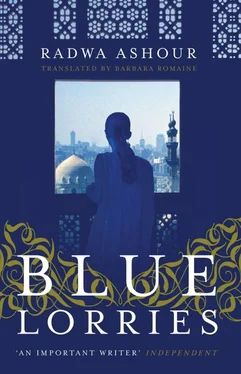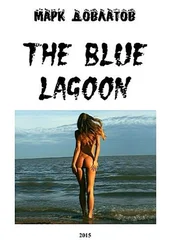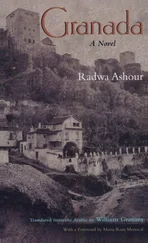My feelings were similar to this on that sweltering day in July when I said goodbye to the boys at the Cairo airport, and if I hadn’t been too shy I would have raised up my voice and belted out the song I was singing in an undertone and the airport would have come to a stop in consternation at this woman past the age of forty (it might not have seemed to the casual observer that I was over forty, because of my clothes and the arrangement of my hair tied back in a ponytail, but I had reached the age of forty-six — or, in classical Arabic, I was ‘a woman in the fifth decade of her life’, having covered more than half the distance between the fifth and the sixth) — I say, had I vociferated in song (this word ‘vociferate’ is one of the more unfortunate specimens of our beautiful language), the airport would have come to a stop in consternation at such bizarre behaviour, perhaps also at my exceptional ability to reduce any melody to a discordant cacophony. At any rate, I carried on singing in a low voice as I handed over my passport to the Middle East Airlines employee, and then I stopped, perforce, to answer her question. ‘I only have this one small bag with me,’ I said, ‘and I’ll carry it on.’ I took my passport, went back to singing, and continued singing as I stood in the queue for passport security, held out the passport for the officer to administer the exit stamp, and finally as I settled into a seat at the airport café, to wait for departure.
I had followed the drama minutely, every day, every hour. The first day, I sat watching the television from the time I got home from work until evening. On the second day, I dashed to work, did what was required of me, and dashed back home. For the next two days I didn’t leave the house or my spot in front of the television. To begin with, there was the liberation of Qantara, Deir Seriane, Al-Qsair, and Taibe. Then more villages and towns followed: Markaba, Beit Yahoun, Al-Adaisse, Al-Houla, Beni Haiyane, Tallouse, Meiss al-Jabal, Kfar Kila, Al-Khiam, Al-Naqoura, Bent Jbail, Marj‘oyun. I corroborated the events by going back to the map, to ascertain the location of each. In a matter of days, these villages and towns, previously unknown to me, became places that were intimately familiar. When Nadir and Nadeem got home from work, I would recount to them the details of what I had seen; after naming each village and town, I would point out its specific location. Suddenly I laughed, remembering my aunt, when she talked about the villages neighbouring ours — how she took great care to say just where they were: on the land to the east or the land to the west, bordering our village or some other place; and the distance between the two: as if she feared that her listener would mistake the location of our village and lose his way.
The Israeli army had fled.
A desperate attempt on the part of Lahad’s men. Bombardment of the people of Bent Jbail returning to their hometown. Another attempt: The Israelis opened fire and struck their own agents in Lahad’s army. A third attempt: They poured petrol from the tanks onto the roads. No use. At Al-Shaqif, the last fortified position in which they had a presence, a group was besieged, waiting to be airlifted by helicopter to Israel. Then the collapse — complete and final collapse. They left behind their tanks, transport vehicles, heavy artillery, rifles, pistols, ammunition, and an army of their agents.
It would be very difficult for me to describe my feelings as I followed the thousands of people setting out for their liberated villages, making their way along dusty tracks, climbing the hills either on foot, or by car or motorcycle. Yellow flags, green flags, and flags of a white background coloured with green and red. Bulldozers removing the barriers. The gate that had closed off the road to them opened by hands, arms, and shoulders. The people passed through, and kept on ascending, getting closer, reaching their destination: women strewed the new arrivals with rice and rose petals. Ahlan wa sahlan! Welcome home! ‘Twenty years we’ve been dead, and now we are reborn.’ These words were spoken by an old man as he greeted the new arrivals. A woman wearing an army uniform was asked by another who was there with the media whether the uniform was part of ‘the spoils of victory’. ‘No,’ she replied, ‘these clothes belonged to a comrade of my son — both of them martyrs.’
‘Are you happy on this day?’ the journalist asked her.
The woman replied, ‘Happy, yes, but my happiness will be complete when the detainees come back from the Israeli prisons, and the bodies of our martyred sons are returned to us.’
A youth pulled down a poster displaying a picture of one of the leaders of the collaborating army, tore it to pieces, and continued on his way. Young girls wept, women ululated and sang, two men embraced and held the embrace for a long time, as if afraid that if one of them let go of the other he might find his friend behind barbed wire that would once again keep them apart. In a dusty village square, a prayer was held that united those returning with those who had stayed on in the village. A group photograph of the residents of Bent Jbail, taken in front of the town’s telephone company, which had been the collaborators’ headquarters, laughing faces, people pressed shoulder-to-shoulder, yellow flags fluttering, in a still shot, as if addressing time itself: ‘Take this picture — document this.’
The men of Lahad’s army, which had collaborated with Israel, gave themselves up. The camera moved in on them as they sat in a large transport vehicle. They hid their faces. The jig was up. Their leaders had asked permission to take refuge with their families in Israel. A long line of people and cars stood awaiting permits to cross. The Fatima Gate closed behind the last Israeli soldier leaving Lebanon — the television showed the great iron gate and broadcast the loud creaking noise it made as its two panels swung on their hinges. An Israeli soldier on the other side encircled it with heavy chains. Then the iron lock.
At Bent Jbail, Hasan Nasrallah said in his speech on the twenty-sixth of May, 2000, ‘Put away your despair. Arm yourselves,’ he said, ‘with hope.’
Antoine Lahad, in a statement from Paris, said, ‘We dedicated ourselves to Israel for twenty-five years, but Israel betrayed and abandoned us in a single night.’
Nasrallah said in his speech, ‘The age of defeat is over.’
The next day (the twenty-seventh of May), I got out of bed the moment I awoke, took a shower, and put on a brightly coloured dress — it was the first time I had shed mourning garb since Hazem’s death. I made myself a cup of tea, picked up a pen, and sat down to write to him:
‘Couldn’t you have held on for five months? You only needed to wait four months and twenty days — no more — and then your life would have gone on for years. I miss you so much, but I’m going to set that aside now and tell you what’s happened.’ And I told the story, told in detail what I had seen via live television broadcast; then I drew a map for him showing the locations of the villages and towns. At the end of the letter, I told him that I meant to visit southern Lebanon as soon as I got the chance. (Hazem was the first person I told of my travel plans.) When I finished the letter, I put it in an envelope, but when I went to write the address, I felt perplexed; I put the letter in my handbag, and got up to make myself another cup of tea and get ready for work.
It seemed to me for a moment that I might continue writing letters to Hazem. I told myself that this could be the beginning of one of my sudden manias. Or it could be true madness, the kind that would remove me from the rational world. But I wrote him only one more letter after that, which I began when I was at Beirut Airport, waiting for my flight. I continued writing on the plane. When I finished this letter, the flight attendant was telling us to fasten our safety belts, because the plane was about to land at Cairo Airport.
Читать дальше











